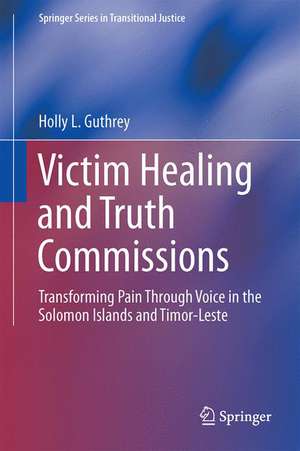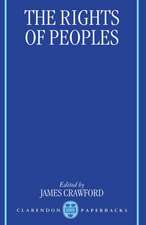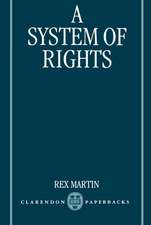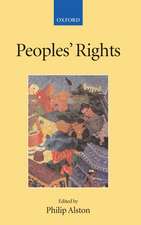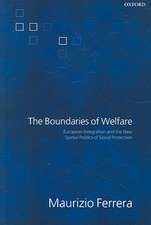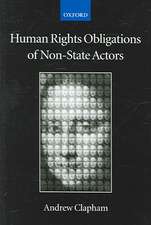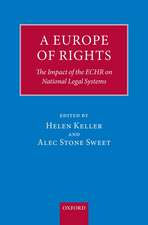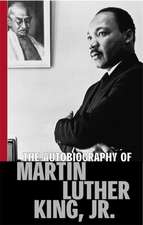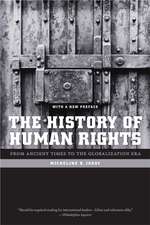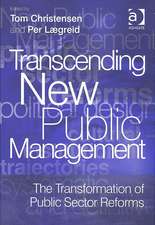Victim Healing and Truth Commissions: Transforming Pain Through Voice in Solomon Islands and Timor-Leste: Springer Series in Transitional Justice, cartea 11
Autor Holly L. Guthreyen Limba Engleză Hardback – 23 mar 2015
| Toate formatele și edițiile | Preț | Express |
|---|---|---|
| Paperback (1) | 382.36 lei 43-57 zile | |
| Springer International Publishing – 9 oct 2016 | 382.36 lei 43-57 zile | |
| Hardback (1) | 389.70 lei 43-57 zile | |
| Springer International Publishing – 23 mar 2015 | 389.70 lei 43-57 zile |
Preț: 389.70 lei
Nou
Puncte Express: 585
Preț estimativ în valută:
74.58€ • 77.39$ • 62.33£
74.58€ • 77.39$ • 62.33£
Carte tipărită la comandă
Livrare economică 17-31 martie
Preluare comenzi: 021 569.72.76
Specificații
ISBN-13: 9783319124865
ISBN-10: 3319124862
Pagini: 200
Ilustrații: IX, 184 p. 5 illus. in color.
Dimensiuni: 155 x 235 x 17 mm
Greutate: 0.45 kg
Ediția:2015
Editura: Springer International Publishing
Colecția Springer
Seria Springer Series in Transitional Justice
Locul publicării:Cham, Switzerland
ISBN-10: 3319124862
Pagini: 200
Ilustrații: IX, 184 p. 5 illus. in color.
Dimensiuni: 155 x 235 x 17 mm
Greutate: 0.45 kg
Ediția:2015
Editura: Springer International Publishing
Colecția Springer
Seria Springer Series in Transitional Justice
Locul publicării:Cham, Switzerland
Public țintă
ResearchCuprins
1 Introduction. 1.1 Mass Violence and Victim Needs during Transitions toward Sustainable Peace. 1.2 Outline of Findings. 2 Healing and Truth Commissions: Competition or Complement?. 2.1 Why Focus on Healing. 2.2 Healing: A Complex Goal after Mass Violence. 2.3 Truth Commissions: A Restorative, Victim-Centred Response to Mass Violence. 3 Theories Explaining the Healing Potential of Public Truth-telling: Linking Voice, Truth Commissions, and Healing 3.1 Testimony Method and Healing. 3.2 Theories of Justice and the Role of Voice. 3.3 Giving Testimony in Truth Commissions: Possibilities for Voice and Healing. 4 Research Design and Methods. 4.1 Choosing the Investigation Method. 4.2 Operationalising Key Concepts. 4.3 Case Selection. 4.4 Developing the Research Instrument: Semi-Structured Interview Questionnaire. 4.5 Sampling Strategy. 4.6 Data Collection. 4.7 Ethical Issues. 4.8 Data Analysis and Presentation. 4.9 Limitations. 5 Timor-Leste: Case Study Analysis. 5.1 Case Background: Timor-Leste. 5.2 Post-conflict Justice Efforts. 5.3 Field Research Findings and Analysis: Giving Testimony to the CAVR—Opportunities for Healing through Voice 5.4 Other Findings.6 Solomon Islands: Case Study Analysis. 6.1 Case Background: Solomon Islands. 6.2 Post-Conflict Justice Efforts. 6.3 Field Research Findings and Analysis: Giving Testimony to the TRC—Opportunities for Healing through Voice 6.4 Other findings.7 Making Sense of the Findings from Timor-Leste and Solomon Islands. 7.1 Similarities between Cases. 7.2 Differences between Cases.8 Conclusion.
Notă biografică
Dr. Holly Guthrey is a Researcher and Program Coordinator, in the East Asian Peace Program at the Department of Peace and Conflict Research, at Uppsala University in Uppsala, Sweden. She recently completed her PhD at the National Centre for Peace and Conflict Studies, University of Otago, New Zealand.
Textul de pe ultima copertă
This volume contributes to the growing body of transitional justice literature by providing insight into how truth commissions may be beneficial to victims of mass violence, based on data collected in Timor-Leste and Solomon Islands. It contains empirical, comparative research that draws on literature in the fields of victim psychology, procedural justice, and transitional justice. Ultimately, this study is guided by the puzzle of why truth-telling in post-conflict settings has been found to be both helpful and harmful to victims of mass violence.
Existing studies have identified a range of positive benefits and negative consequences of truth-telling for victims; however, the reasons why some victims experience a sense of healing while others do not after participating in post-conflict truth commission processes continue to remain unclear. Hence, to address one piece of this complex puzzle, this book explores the illuminating question: What pathways lead from truth-telling to victim healing in post-conflict settings? One answer, this book argues, may be voice. Building on the proposition that having voice—a key component of procedural justice—can help individuals to overcome the disempowerment and marginalisation of victimisation, this book investigates voice as a causal mechanism that can create pathways toward healing within truth commission public hearings.
Comparative, empirical studies that investigate how truth-telling contributes to victim healing in post-conflict settings are scarce in the field of transitional justice and this book begins to fill an important gap in the existing body of literature. From a practical standpoint, by enhancing understanding of how truth commissions can promote healing, the findings and arguments in Victim Healing and Truth Commissions: Transforming Pain Through Voice in the Solomon Islands and Timor-Leste provide insight into how the design of transitional justice processes may be improved in the future to better respond to the needs of victims of mass violence.
Existing studies have identified a range of positive benefits and negative consequences of truth-telling for victims; however, the reasons why some victims experience a sense of healing while others do not after participating in post-conflict truth commission processes continue to remain unclear. Hence, to address one piece of this complex puzzle, this book explores the illuminating question: What pathways lead from truth-telling to victim healing in post-conflict settings? One answer, this book argues, may be voice. Building on the proposition that having voice—a key component of procedural justice—can help individuals to overcome the disempowerment and marginalisation of victimisation, this book investigates voice as a causal mechanism that can create pathways toward healing within truth commission public hearings.
Comparative, empirical studies that investigate how truth-telling contributes to victim healing in post-conflict settings are scarce in the field of transitional justice and this book begins to fill an important gap in the existing body of literature. From a practical standpoint, by enhancing understanding of how truth commissions can promote healing, the findings and arguments in Victim Healing and Truth Commissions: Transforming Pain Through Voice in the Solomon Islands and Timor-Leste provide insight into how the design of transitional justice processes may be improved in the future to better respond to the needs of victims of mass violence.
Caracteristici
Focuses on determining the methods by which truth-telling can facilitate healing? Provides novel empirical data about trends in truth commission creation over time and by region Links multiple literatures (restorative justice, procedural justice, victim healing) to further existing theories on the healing potential of truth-telling Includes supplementary material: sn.pub/extras
